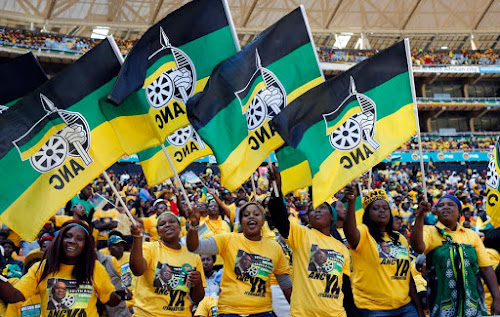Ladies in power are complicit in Southern Africa's gender-based physical violence
As Southern Africans marked Women's Month, which commemorates the turning points and accomplishments of its ladies, a politically billed occasion including gender-based physical violence made the headings.
The country's replacement priest of basic education and learning, Mduduzi Manana was forced to surrender after he presumably attacked 2 ladies at a club in Johannesburg. Pictures of the event went viral, sparking a huge social media outcry.
The event should give Southern Africans pause for thought. It highlights deep problems about physical violence versus ladies in a nation where most ladies still experience deep deprival, exemption and some of the most awful gender-based physical violence on the planet.
But not all ladies leaders in Southern Africa appear to value what needs to be done. Take the reaction of Bathabile Dlamini, head of state of the regulating African Nationwide Congress's (ANC's) Women's Organization. She leapt to the replacement minister's defence, suggesting that the "attack" on him was "a political device". She went on say that politicians had done even worse. The organization is one of the most effective women's entrance hall in the nation.This isn't the very first time that leaders of the ANC Womens' Organization have gotten on the incorrect side of background on a variety of critical sex problems, consisting of sex-related physical violence.
The ANC ladies leaders aren't alone. Research has found that, disturbingly, ladies are often complicit in the physical violence perpetrated by their guys. SISTEM BERMAIN SLOT ONLINE

Research also factors to ladies elites striking "patriarchal deals". Deniz Kandiyoti, a prominent scholastic on sex connections and developing national politics, argues that this strategy affords them positional power and condition for their conformity and complicity in male-dominated political spaces.
This approval of patriarchal standards and rules to wrest what power they can, despite that it drawbacks them, perpetuates the patriarchal status.
Ladies elites such as this must be tested and held responsible for their role in preserving and sustaining women's oppression.
Southern Africa's particular background
Patriarchal forces are tenacious. In Southern Africa's situation they have persisted, partially because of an unintentional repercussion of the struggle versus apartheid when ladies made sacrifices for the "greater great". This meant that ladies stayed quiet also when guys prominent the ANC mistreated their power.
Despite women's dedication and payment to the apartheid struggle they were never ever considered truly equal to guys in the patriarchal and ordered frameworks of the ANC and its equipped wing uMkhonto we Siswe. The paradox was that the defend equal rights didn't encompass sex equal rights despite the unsupported claims of a "non-racist and non-sexist and autonomous Southern Africa".


